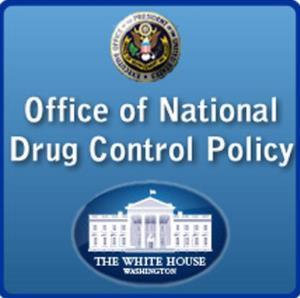Attorney General Sessions may not like weed, but Congress isn't going to let him spend any federal dollars to bust patients and suppliers.
Congress just passed a budget barring the use of federal funds to mess with medical marijuana. Now the president says that doesn't matter.
The International Drug Policy Reform Conference is meeting this fall in Atlanta. The organizers don't want money to be an object.
Trump makes ominous noises about ignoring congressional mandates protecting medical marijuana states, Florida fails to complete medical marijuana implementation legislation, and more.
There's trouble in Hackensack, a pair of California cops admit stealing eradicated weed and reselling it, a Seattle cop gets nailed for hauling weed across the country, a Texas cop gets nailed for pilfering cocaine, and more.
Congress won't fund federal medical marijuana enforcement in states where it's legal, the Massachusetts Medical Society calls for a pilot safe injection site, a Wisconsin federal judge throws out that state's "cocaine mom" law, and more.
The long slog toward marijuana law reform continues in New Hampshire and Vermont, a Maine bill would ban kratom, Tom Marino is reportedly out as drug czar, and more.
The DEA proposes its own corps of prosecutors to go after opioids, Maine's governor wants to force repeat overdosers to pay for the naloxone they use, and more.
The Trump administration wants to slash funding for the drug czar's office by 95%, the American Health Care Act approved in the House Thursday would leave millions without access to drug treatment, and more.
Marijuana activists march worldwide, the Trump administration hints it may ignore a congressional ban on funding for medical marijuana enforcement, the Vermont legalization effort still lives, and more.
Nevada marijuana stores get an okay for early openings, Georgia's governor signs a CBC cannabis oil expansion bill, Chris Christie says drug czar budget cuts aren't going to happen, and more.
A bill legalizing the possession and cultivaiton of small amounts of marijuana has passed the Vermont legislature, Attorney General Sessions could be on the verge of reinstating harsh drug war prosecution practices, Mexico's drug violence is on the upswing, and more.
This article was produced in collaboration with AlterNet and first appeared here.
The bipartisan congressional budget agreement to keep the federal government operating through September contains exactly no money for the Justice Department to wage war on medical marijuana in states where it is legal. The agreement reached Sunday instead explicitly bars the use of federal funds to go after medical marijuana.

You're safe -- sort of -- at least until September. (Sandra Yruel/Drug Policy Alliance)
And it sends a strong message to Attorney General Jeff Sessions, an avowed foe of marijuana and loosening marijuana laws, who told reporters in a
February Justice Department briefing that while states "can pass the laws they choose," it remains "a violation of federal law to distribute marijuana throughout any place in the United States, whether a state legalizes it or not."
The budget agreement eliminated funding for medical marijuana enforcement by adopting the language of an amendment that has been successfully used since 2014 to keep the feds out of medical marijuana states. Known originally as the Hinchey-Rohrabacher amendment and now as the Farr-Rohrabacher amendment, the measure bars the Justice Department from spending money to prevent states from "implementing their own laws that authorize the use, distribution, possession, or cultivation of medical marijuana."
The budget language lists the states that have medical marijuana laws, but curiously enough, does not include Indiana and North Dakota, both of which recently adopted medical marijuana laws. At this point, the omission is considered an error, not evidence of malign intent toward those two states.
It should be noted that the budget move does not necessarily mean medical marijuana operators are now free and clear of potential federal attention. Federal prosecutors could attempt to go after such operations by arguing that they are somehow not in compliance with state laws.
Still, the move was greeted with studied approval by medical marijuana supporters, who are now calling for marijuana to be removed from the Controlled Substances Act.
"Medical marijuana patients and the businesses that support them now have a measure of certainty," said Oregon US Rep. Earl Blumenauer (D-OR), a founding member of the Congressional Cannabis Caucus. "But this annual challenge must end. We need permanent protections for state-legal medical marijuana programs, as well as adult-use."
It is time to "amend federal law in a manner that comports with the available science, public opinion, and with America's rapidly changing cultural and legal landscape," agreed Justin Strekal, political director of the National Organization for the Reform of Marijuana Laws (NORML).
The best way to do that, Strekal said, is "removing cannabis from the Controlled Substances Act so that states possess the flexibility to engage in their own marijuana regulatory policies how best they see fit."
Adding restrictive amendments to the Justice Department budget bill has served in recent years to block the feds from interfering in medical marijuana states, but is only a stopgap measure. The amendments have to be renewed each fiscal year, and there is always a chance they could fail. That's why activists and the industry want the certainty that would be provided by either changing the federal marijuana laws or by making the funding ban permanent.
"Medical cannabis patients in the US can rest easy knowing they won't have to return to the black market to acquire their medicine," said Jeffrey Zucker of the marijuana business strategy firm Green Lion Partners. "Operators can relax a bit knowing their hard work isn't for naught and their employees' jobs are safe."
But only until September -- and that's why it's not quite time to get comfortable, he said.
"While this is great as a continuing step, it's important for activists and the industry to remain vigilant and getting cannabis federally unscheduled and truly ending the prohibition of this medicinal plant," Zucker said.
In the meantime, medical marijuana is protected in the 29 states where it is legal. But adult-use legal marijuana, legal in eight states, is not under the purview of the budget agreement and is still theoretically at risk from a Sessions Justice Department.
But even Sessions, a fire-breathing foe of the weed, increasingly seems disinclined to make good on earlier vows to go after legal pot. Like Donald Trump discovering that health care reform is "complicated," Jeff Sessions is apparently coming to understand, as he reportedly told Colorado Governor John Hickenlooper's chief of staff last week, that the Obama administration's toleration of state-legal marijuana legalization under specified conditions is "not too far from good policy."
back to top
This article was produced in collaboration with AlterNet and first appeared here.
Congress moved to protect medical marijuana by including in its stopgap federal spending bill a provision barring the Justice Department from using federal funds to go after the drug in states where medical marijuana is legal, but now, President Trump says that doesn't matter.

The president wants to ignore the will of Congress when it comes to funding for medical marijuana enforcement. (Gage Skidmore)
Even though Trump signed the spending bill into law last Friday, he included a
signing statement objecting to numerous provisions in the bill -- including the ban on funds to block the implementation of medical marijuana laws in those states.
Despite those state laws, marijuana remains illegal under federal law, which also does not recognize "medical marijuana."
The president said he reserved the right to ignore that provision and left open the possibility the Trump administration could go after the 29 states, the District of Columbia, and the territories of Guam and Puerto Rico where medical marijuana use is allowed.
"Division B, section 537 provides that the Department of Justice may not use any funds to prevent implementation of medical marijuana laws by various States and territories," Trump noted in the signing statement. "I will treat this provision consistently with my constitutional responsibility to take care that the laws be faithfully executed."
The language suggests that Trump could give Attorney General Jeff Sessions his go ahead when it comes to enforcing marijuana policy. Sessions has vowed to crack down on marijuana and has scoffed at arguments for its medical use as "desperate."
"I reject the idea that we're going to be better placed if we have more marijuana," Sessions told law enforcement officials in an April speech. "It's not a healthy substance, particularly for young people."
But the language also sets up a potential power struggle with Congress, which, under the Constitution, has the sole power to appropriate funds for federal government operations.
As Steve Bell, a senior adviser at the Bipartisan Policy Center in Washington told Bloomberg News, the signing statement signals a desire to usurp power from Congress.
"It is the constitutional prerogative of the Congress to spend money and to put limitations on spending," said Bell, a former staff director of the Senate Budget Committee and an aide to former Republican Senator Pete Domenici of New Mexico. "This is an extremely broad assertion of executive branch power over the purse."
Rep. Dana Rohrabacher (R-CA), a primary sponsor of the rider who is also a Trump supporter, threatened to take the matter to the Supreme Court if necessary to protect medical marijuana.
Medical marijuana providers in states where it is legal thought they had some protection, thanks to the congressional budget action, but in typical Trumpian fashion, the president's signing statement has once again introduced doubt and uncertainty, leaving at risk not only patients and providers, but also traditional limits on executive authority.
back to top
In October, the Drug Policy Alliance's International Drug Policy Reform Conference, will convene in Atlanta. The Reform Conference is a biennial event that brings together people from around the world who believe that the war on drugs is doing more harm than good.

DPA conference vigil, Albuquerque, 2009
More than 1,500 attendees representing over 80 countries joined the last International Drug Policy Reform Conference in the Washington, DC metropolitan area in 2015 (
click here for footage), and even more are expected this year. Attendees will have the opportunity to spend three days interacting with people committed to finding alternatives to the war on drugs while participating in sessions given by leading experts from around the world.
Registration is available here, and scholarships are available to people to those who are actively involved in the movement or have been personally affected by the drug war, and for whom attendance and travel would be difficult. The application deadline for scholarships is May 26th, and the application form is online here.
back to top
Trump makes ominous noises about ignoring congressional mandates protecting medical marijuana states, Florida fails to complete medical marijuana implementation legislation, and more.
National
Last Friday, Trump threatened to ignore congressional protections for medical marijuana. Congress moved to protect medical marijuana by including in its stopgap federal spending bill a provision barring the Justice Department from using federal funds to go after the drug in states where medical marijuana is legal, but now, President Trump says that doesn't matter. Even though Trump signed the spending bill into law last Friday, he included a signing statement objecting to numerous provisions in the bill -- including the ban on funds to block the implementation of medical marijuana laws in those states. The president seemed to imply that he could ignore the provision and go after the 29 states, the District of Columbia, and the territories of Guam and Puerto Rico where medical marijuana use is allowed. "Division B, section 537 provides that the Department of Justice may not use any funds to prevent implementation of medical marijuana laws by various States and territories," Trump noted in the signing statement. "I will treat this provision consistently with my constitutional responsibility to take care that the laws be faithfully executed."
Colorado
Last Monday, the legislature approved adding PTSD as a qualifying condition. A bill to "Allow Medical Marijuana Use for Stress Disorders," Senate Bill 17, was sent to the governor's desk after the Senate last week approved a final concurrence vote to amendments accepted in the House. Gov. John Hickenlooper (D) is expected to sign it.
Florida
Last Thursday, the Senate approved an amended House medical marijuana bill. The Senate gave its okay to a heavily-amended House Bill 1397, sending the measure back to the House for final approval. Senate bill sponsor Sen. Rob Bradley (R-Fleming) offered and the Senate approved a "delete all" amendment basically replacing the House text. Among the changes: limiting growers to five retail facilities, allowing the Health Department to grant 10 new licenses this year, and a provision to add five more licenses for every 75,000 patients. The legislative session ends on Monday, so the House must act quickly.
On Monday, the legislature adjourned with no medical marijuana bill approved. Legislators were unable to agree on how to regulate the state's nascent medical marijuana industry, with the Senate refusing to hear a new proposal from the House on the last day of the legislative sessions, effectively killing the bill. That means it will now be up to the state Department of Health to craft rules and regulations for the industry. It also means that any rules -- such as a proposed ban on smoking medical marijuana -- will be easier to challenge in court than if they had been passed by the legislature.
Georgia
On Tuesday, the governor signed a CBD cannabis oil expansion bill. Gov. Nathan Deal (R) signed into law Senate Bill 16, which expands the number of qualifying conditions for the use of low-THC cannabis oil and allows patients in hospice care to possess it. The new qualifying conditions are AIDS, Alzheimer's disease, autism, epidermolysis bullosa, peripheral neuropathy and Tourette's syndrome.
New York
Last Tuesday, the Assembly approved adding PTSD as a qualifying condition. The Assembly voted overwhelmingly to approve Assembly Bill 7006, sponsored by Health Committee Chairman Dick Gottfried (D-Manhattan), which would add PTSD to the state's list of qualifying conditions for medical marijuana. The bill now heads to the Senate.
South Carolina
On Monday, medical marijuana bills died. Bills allowing for medical marijuana are dead this session. Identical bills filed in the House and Senate went basically nowhere, with the House version stuck in the Medical Committee and the Senate version still stuck in a subcommittee.
Texas
Last Friday, a medical marijuana bill advanced. Last Friday, the House Committee on Public Health approved a medical marijuana bill, House Bill 2107. The bill expands a 2015 law by increasing the number of medical conditions that qualify for medical marijuana use. The bill now goes to the Calendars Committee, which will decide whether to take it to a House floor vote. Bills must pass the House by this Thursday or they're dead.
On Tuesday, the medical marijuana bill died. Despite the strongest support yet in Austin, the fight to pass a medical marijuana bill is over. House Bill 2107 is dead, killed by the House Calendars Committee, which failed to take action on it before a Thursday deadline.
[For extensive information about the medical marijuana debate, presented in a neutral format, visit MedicalMarijuana.ProCon.org.]
back to top
There's trouble in Hackensack, a pair of California cops admit stealing eradicated weed and reselling it, a Seattle cop gets nailed for hauling weed across the country, a Texas cop gets nailed for pilfering cocaine, and more. Let's get to it:
In Hackensack, New Jersey,
all six members of the Hackensack Police Narcotics Division were suspended Tuesday pending the outcome of an administrative investigation. The unit commander, his second in command, two detectives, and two patrol officers were all suspended. The investigation is being conducted with help from the Bergen County Prosecutor's Office. Stay tuned.
In San Juan, Texas, a San Juan police officer was arrested last Friday after allegedly taking cocaine from a traffic accident instead of turning it in. Officer Salvador Gonzalez went down after he and Border Patrol agents responded to accident and found an abandoned vehicle with two duffle bags of drug inside. Hernandez delivered 37 bundles of cocaine to the police department, but kept three for himself. He is charged with possession with intent to distribute more than 500 grams of cocaine.
In Seattle, a Seattle police officer was arrested last Saturday on charges he helped smuggle hundreds of pounds of marijuana to Baltimore. Officer Alex Chapackdee, 44, is accused of repeatedly driving his recreational vehicle across the country filled with marijuana and then back to Seattle with large amounts of cash. He is charged with conspiracy to distribute marijuana.
In Bakersfield, California, two former Kern County sheriff's deputies pleaded guilty last Thursday to a drug-selling scheme while members of the force. Logan August and Derrick Penney admitted working with two former Bakersfield police officers who have already been jailed in the scheme, which involved taking marijuana seized in eradication operations and reselling it. They have now pleaded guilty to conspiracy to distribute and possess with intent to distribute marijuana. The two each face five years in prison, a fine of $250,000, a minimum two-year period of supervised release and a maximum lifetime period of supervised release.
In Tucson, Arizona, a former Pima County sheriff's office chief deputy was sentenced last Friday to a year's probation after pleading guilty to illegally using money seized from drug suspects. Former Chief Deputy Christopher Radtke improperly used money seized through the asset forfeiture program for expenses including $600 for two model airplanes and a payment to an artist to create a menu board for a restaurant within the sheriff's department. As part of his plea agreement, Radtke described how the department had for 18 years laundered forfeiture funds to get around restrictions on how they were used. Radtke became involved six years ago. He was originally charged with six felony counts of theft concerning programs receiving federal funds and conspiracy to launder monetary instruments, but plea bargained down to three misdemeanor counts of theft of public funds.
back to top
Congress won't fund federal medical marijuana enforcement in states where it's legal, the Massachusetts Medical Society calls for a pilot safe injection site, a Wisconsin federal judge throws out that state's "cocaine mom" law, and more.

Chris Christie is back to attacking marijuana legalization. (Creative Commons/Wikimedia/Gage Skidmore)
Chris Christie Accuses Democrats of Wanting to "Poison Our Kids" With Pot to Raise Tax Revenues. New Jersey Gov. Chris Christie (R) on Monday criticized efforts to legalize marijuana and claimed Democrats were willing to "poison our kids" to get marijuana tax revenues. A reference to a recent report saying the state could earn $300 million in pot taxes set him off. "This is the part that liberals love the most: We can tax it. Sweet Jesus, we can tax it! More money for us!" Christie exclaime. "I can say this now because I'm not running for anything again: $300 million is nothing. We have a $35.5 billion budget; $300 million is a rounding error. I'm sorry. It's true. Think about it, that's 1 percent, less than 1 percent, of the entire state budget for a year. And we're going to poison our kids for 1 percent more money that they can spend on some God awful, stupid program that they can put in the mailer and send out and say, 'I delivered $300 million more for this.'" There's more, too; just click on the link.
Medical Marijuana
Congress Rolls Out Interim Budget With No Funding for Medical Marijuana Enforcement. The budget bill crafted by Congress to keep the federal government working in the short term includes the Farr-Rohrabacher amendment language barring the spending of federal dollars to enforce federal pot prohibition in states that have legalized medical marijuana. The language is only good through September, though.
Federal CBD Bill Filed. US Rep. Scott Perry (R-PA) on Monday filed House Resolution 2273, which would amend the Controlled Substances Act to exclude cannabidiol (CBD) and CBD-rich plants from the definition of marijuana. It's been referred to the House Judiciary, Financial Services, and Energy and Commerce committees.
Florida House Passes Medical Marijuana Implementing Bill. The House on Tuesday approved a medical marijuana regulation measure, House Bill 1397, after altering several provisions opposed by patients and the industry. The measure removes the ban on using low-THC marijuana products in public, increases the number of dispensaries to 17 statewide, and allows patients to only have to see a doctor once every seven months to get renewed. The bill now goes to the Senate.
Heroin and Prescription Opioids
Baltimore Cops Begin Investigating Overdoses in Bid to Nail Dealers. A task force of five Baltimore police detectives have begun investigating drug overdoses in an effort to build criminal cases against drug dealers. But with 800 fatal overdoses in the city las year, five detectives may not be able to keep up. The state lacks a law allowing prosecutors to charge dealers in the death of an overdose victim, but prosecutors say there exists "a wide range" of ways they can bring related charges.
Harm Reduction
Massachusetts Docs Call for Supervised Drug Consumption Sites. The Massachusetts Medical Society has endorsed lobbying state and federal policymakers to allow the state to begin a safe injection site pilot program. At the group's annual meeting last Saturday, the membership adopted a policy calling for "a pilot supervised injection facility program in the state, to be under the direction and oversight of the state" as well as wider use of naloxone and more treatment for substance use disorder. The policy calls for the organization to lobby for a federal exemption and state legislation to allow such a facility.
Law Enforcement
Federal Judge Blocks Wisconsin "Cocaine Mom" Law. A US district court judge in Madison ruled last Friday that the state's "cocaine mom" law, which allows the state to detain a pregnant woman suspected of drug or alcohol abuse, is so vague as to be unconstitutional. The law is "void for vagueness," Judge James Peterson held. "Erratic enforcement, driven by the stigma attached to drug and alcohol use by expectant mothers, is all but ensured." The law allowed the state to treat fetuses like children in need of protection if the "expectant mother habitually lacks self-control in the use of alcohol beverages, controlled substances or controlled substance analogs, exhibited to a severe degree, to the extent that there is a substantial risk that the physical health of the unborn child, and of the child when born, will be seriously affected or endangered." But Peterson ruled that such terminology is not "amenable to reasonably precise interpretation."
International
Uruguay Begins Registering Users to Buy Pot in Pharmacies. The first country to legalize marijuana took another step toward implementing that decision on Tuesday as it opened a registry for people who wish to buy marijuana from pharmacies beginning in July. All potential pharmacy pot customers must register before availing themselves of the service. Pot will go for about $1.30 a gram, with each user limited to 10 grams per week.
back to top
The long slog toward marijuana law reform continues in New Hampshire and Vermont, a Maine bill would ban kratom, Tom Marino is reportedly out as drug czar, and more.

Maine could join the handful of states that have banned kratom. (Project CBD)
New Hampshire Decriminalization Bill Advances. After years of rejecting marijuana law reforms, the state Senate is advancing a decriminalization bill. The Senate Judiciary Committee on Tuesday approved House Bill 640 on a 3-2 vote. The bill would decriminalize the possession of up to three-quarters of an ounce of weed. The bill has already passed the House, but the House version decriminalized up to an ounce.
Oregon Bill to Protect Workers Who Use Marijuana Dies. A bill that would have ended workplace marijuana drug testing has died in the Senate after backers conceded they did not have the votes to pass it. Senate Bill 301 would have required employers from testing workers for any drug that is legal in the state, as long as it was consumed outside of work hours and didn't interfere with the workers' duties. The bill was opposed by business groups.
Vermont House Passes Legalization Bill, But… The House on Tuesday approved a bill to legalize the possession of up to an ounce of marijuana -- though not its sale -- but the bill is not expected to advance further this year. House Bill 170 passed on a 74-68 vote, but only after fending off attempts to send it back to committee and to weaken it. The bill also allows for the cultivation of two mature or four immature plants. The Senate has passed its own, more far-reaching legalization bill, which includes tax and regulate, but an amendment that would have brought the House bill in line with the Senate bill was defeated 42-99. The legislative session ends Saturday, and it is not expected that a compromise can be reached by then, but lawmakers can consider bills passed this session next year during the second half of the legislative biennium.
Kratom
Maine Bill Would Ban Kratom. A bill that would make kratom a controlled substance in the same schedule as cocaine, methamphetamine, and heroin has been filed in the state legislature. Senate Bill1546 was introduced last week and is now before the Joint Criminal Justice and Public Safety Committee.
Asset Forfeiture
Colorado Lawmakers Back With New Asset Forfeiture Bill. Senate Republicans killed a civil asset forfeiture reform bill earlier this session, but now a bipartisan group of lawmakers are back with a new bill, House Bill 1313, which has been modified to address the concerns of law enforcement and prosecutors, who opposed the earlier bill. The new bill cuts in half the $100,000 threshold that barred local law enforcement from partnering with the feds in order to get the bulk of seized goods. It also imposes reporting requirements on seizures. The bill won preliminary approval in the House on Tuesday.
Drug Policy
Donald Trump Will NOT Name Tom Marino Drug Czar. According to news reports, President Donald Trump will not be nominating Rep. Tom Marino (R-PA) to be director of the Office of National Drug Control Policy (colloquially referred to as the "drug czar"). His nomination was opposed by the Drug Policy Alliance, which launched a campaign to prevent Marino from being nominated. Marino's nomination seemed all but certain just a few weeks ago but a flurry of news stories on his extremist views, like turning hospitals into prisons, and using his power as prosecutor to help his friends, no doubt put pressure on the administration to go in a different direction.
back to top
The DEA proposes its own corps of prosecutors to go after opioids, Maine's governor wants to force repeat overdosers to pay for the naloxone they use, and more.
Medical MarijuanaColorado Legislature Approves Adding PTSD as Qualifying Condition. A bill to "Allow Medical Marijuana Use for Stress Disorders," Senate Bill 17, was sent to the governor's desk on Monday after the Senate last week approved a final concurrence vote to amendments accepted in the House. Gov. John Hickenlooper (D) is expected to sign it.
New York Assembly Approves PTSD as Qualifying Condition. The Assembly voted overwhelmingly on Tuesday to approve Assembly Bill 7006, sponsored by Health Committee Chairman Dick Gottfried (D-Manhattan), which would add PTSD to the state's list of qualifying conditions for medical marijuana. The bill now heads to the Senate.
Harm Reduction
Maine Governor Wants Repeat Overdosers to Pay for Naloxone Used to Revive Them. Gov. Paul LePage (R) has submitted a bill, Legislative Document 1558, that would require Maine communities to recover the cost of naloxone from repeat users and fine them $1,000 per incident if they don't go after the money. But doctors and advocates said the bill would make it harder to stop the state's wave of drug overdoses. Le Page is no friend of naloxone, saying it "does not truly save lives; it merely extends them until the next overdose." He has twice vetoed naloxone bills, only to see them overridden both times.
Law Enforcement
DEA Wants Own Prosecutor Corps to Go After Opioids. In a little-noticed proposal published in the Federal Register in March, the DEA said it wants to hire as many as 20 prosecutors to help it enhance its resources and target large offenders. The new prosecutor corps "would be permitted to represent the United States in criminal and civil proceedings before the courts and apply for various legal orders." Funding for the program would come from drug manufacturers regulated by the DEA. If approved, the move would mark the first time the DEA had its own dedicated prosecutors to go after drug offenses. But critics say the plan "exceeds DEA's authority under federal law" because it would require funding from the drug diversion registration program. "In this notice, the DEA effectively proposes a power grab and is trying to end-run the congressional appropriations process," said Michael Collins, deputy director at the Drug Policy Alliance.
back to top
The Trump administration wants to slash funding for the drug czar's office by 95%, the American Health Care Act approved in the House Thursday would leave millions without access to drug treatment, and more.

ONDCP faces massive cuts under the Trump budget. But it's early.
Michigan 2018 Legalization Campaign Gets Underway. Backers of a proposed initiative to legalize pot next year launched their campaign on Friday. The initiative is backed by in-state activists and the Marijuana Policy Project, and needs 252, 000 valid voter signatures to qualify for the November 2018 ballot. A similar effort in 2016 came up short after state officials moved to tighten timelines for signature-gathering.
Medical Marijuana
Florida Senate Approves Amended House Medical Marijuana Bill. The Senate on Thursday gave its okay to a heavily-amended House Bill 1397, sending the measure back to the House for final approval. Senate bill sponsor Sen. Rob Bradley (R-Fleming) offered and the Senate approved a "delete all" amendment basically replacing the House text. Among the changes: limiting growers to five retail facilities, allowing the Health Department to grant 10 new licenses this year, and a provision to add five more licenses for every 75,000 patients. The legislative session ends on Monday, so the House must act quickly.
Drug Policy
White House Proposes Massive Cut in Drug Czar's Office Funding. The Trump administration's Office of Management and Budget has released a document that calls for a 95% cut in funding for the Office of National Drug Control Policy (ONDCP -- the drug czar's office). Under the proposal, funding would be slashed from $388 million to $24 million, with up to 33 employees laid off. The budget would also eliminate grants for programs including the High Intensity Drug Trafficking Areas program and the Drug-Free Communities Support program. The OMB says the budget document is preliminary, not final.
Drug Treatment
House Passes Health Care Reform Bill That Would End Access to Treatment for Millions. The House passed the American Health Care Act (ACHA) on Thursday, placing addiction treatment opportunities for millions at risk. As the Drug Policy Alliance noted, "millions of people would lose treatment coverage under this bill and efforts to end the opioid crisis will be put in grave jeopardy." As a result, the advocacy group warned, "people struggling with problematic substance use could relapse to riskier opioid and other drug use behaviors that increase risk for developing costly medical conditions, contracting and transmitting blood-borne disease, and experiencing life-threating overdose." The bill now goes to the Senate.
International
UN Investigator on Executions Rebukes Philippines Over Drug War Killings. United Nations special rapporteur on extrajudicial, summary, and arbitrary executions rebuked the government of President Rodrigo Duterte on Friday, saying world leaders have recognized that a bloody-handed approach doesn't work, can compound social problems, and "can foster a regime of impunity infecting the whole justice sector and reaching into whole societies, invigorating the rule of violence rather than law." Some 7,000 to 9,000 people have been killed in Duterte's drug war since he took office last year.
back to top
Marijuana activists march worldwide, the Trump administration hints it may ignore a congressional ban on funding for medical marijuana enforcement, the Vermont legalization effort still lives, and more.
Marijuana PolicyGlobal Marijuana Marchers Hit the Streets. From London to Lubbock, New York City to Buenos Aires, marijuana activists took to the streets in dozens of towns and cities around the world in what is being described as the19th annual Global Marijuana March. Hundreds came out in New York, thousands in Buenos Aires, in what was probably the largest single gathering. While Dana Beal and New York City activists have been holding marches since the 1970s, the first "global" march was in 1999.
Arizona Activists Gear Up for Another Initiative Effort in 2018. After being narrowly defeated at the polls last year, activists with Safer Arizona have filed paperwork with the secretary of state's office to allow them to begin signature gathering to place a legalization measure on the November 2018 ballot. The group needs 156,042 valid voter signatures by July 5, 2018 to qualify for the ballot.
Nevada Lawmakers Advance Bill to Eliminate Urine Drug Tests for DUID. Last Friday, the Senate Judiciary Committee approved Assembly Bill 135, which would eliminate the use of urine samples as a measure for testing impaired driving. Police would be limited to using blood tests under the bill. The bill is advancing based on medical testimony that urine testing cannot accurately measure cognitive impairment and maintains the state's existing law that sets a de facto impairment level of 5 nanograms per milliliter of blood. The bill has already passed the Assembly and now heads for a Senate floor vote.
Vermont Legalization Effort Not Dead Yet. Last Friday, one day before the legislature was set to adjourn, the Senate approved a compromise marijuana legalization bill. The bill is nearly identical to a measure already passed by the House and would implement the legalization of small-time possession and cultivation beginning in July, but would defer marijuana commerce to a nine-member commission, which would present legislation next year. It's unclear, though, when the House will take up the legislation or what it will do when it does address the bill. The House could vote to approve it or it could send it to conference committee. House leaders have said that instead of ending Saturday, the session will adjourn until Wednesday and then resume.
Medical Marijuana
Trump Threatens to Ignore Congressional Protections for Medical Marijuana. Congress moved to protect medical marijuana by including in its stop-gap federal spending bill a provision barring the Justice Department from using federal funds to go after the drug in states where medical marijuana is legal, but now, President Trump says that doesn't matter. Even though Trump signed the spending bill into law last Friday, he included a signing statement objecting to numerous provisions in the bill -- including the ban on funds to block the implementation of medical marijuana laws in those states.The president said he reserved the right to ignore that provision and left open the possibility the Trump administration could go after the 29 states, the District of Columbia, and the territories of Guam and Puerto Rico where medical marijuana use is allowed. "Division B, section 537 provides that the Department of Justice may not use any funds to prevent implementation of medical marijuana laws by various States and territories," Trump noted in the signing statement. "I will treat this provision consistently with my constitutional responsibility to take care that the laws be faithfully executed."
Florida Legislature Adjourns With No Medical Marijuana Bill. Legislators were unable to agree on how to regulate the state's nascent medical marijuana industry, with the Senate refusing to hear a new proposal from the House on the last day of the legislative sessions, effectively killing the bill. That means it will now be up to the state Department of Health to craft rules and regulations for the industry. It also means that any rules -- such as a proposed ban on smoking medical marijuana -- will be easier to challenge in court than if they had been passed by the legislature.
South Carolina Medical Marijuana Bill Dies. Bills allowing for medical marijuana are dead this session. Identical bills filed in the House and Senate went basically nowhere, with the House version stuck in the Medical Committee and the Senate version still stuck in a subcommittee.
Texas Medical Marijuana Bill Advances. Last Friday, the House Committee on Public Health approved a medical marijuana bill, House Bill 2107. The bill expands a 2015 law by increasing the number of medical conditions that qualify for medical marijuana use. The bill now goes to the Calendars Committee, which will decide whether to take it to a House floor vote. Bills must pass the House by this Thursday or they're dead.
Drug Policy
Ohio GOP, Democratic Senators Blast Proposed Drug Czar Cuts. Both Ohio senators, Rob Portman (R) and Sherrod Brown (D) blasted the Trump administration over reports that it plans a 95% cut to the Office of National Drug Control Policy. Portman said the office was critical for fighting the opioid epidemic, while Brown echoed those comments.
Schumer Blasts Proposed Drug Czar Cuts. Senate Minority Leader Chuck Schumer (D-NY) blasted the Trump administration proposal to cut the drug czar's office, too. "The president goes out and talks about how important it is to fight drugs," he said Sunday. "I'm glad he's doing that, and then his budget is going to propose 95% of a cut in one of the most effective and cost effective ways we can fight the drug scourge."
International
Bipartisan Federal Bill Aims at Philippines Drug War. Sens. Ben Cardin (D-MD), Ed Markey (D-MA), and Marco Rubio (R-FL) have filed the "Philippines Human Rights Accountability and Counternarcotics Act of 2017," Senate Bill 1055, which places restrictions on defense aid to the country, provides additional funding for the Filipino human rights community, and supports a public health approach to drug use. The bill comes as the number of extrajudicial killings passes an estimated 7,000 in around nine months, as a result of the drug war led by Philippines President Rodrigo Duterte.
back to top
Nevada marijuana stores get an okay for early openings, Georgia's governor signs a CBC cannabis oil expansion bill, Chris Christie says drug czar budget cuts aren't going to happen, and more.

Peruvian police attack medical marijuana marchers in Lima last Saturday. (Facebook)
Nevada Recreational Marijuana Sales Can Begin as Early as July 1. The Nevada Tax Commission voted on Monday to approve temporary licenses for qualifying pot shops so that they can open without waiting for the commission to draft rules, a process that must be completed by January 1. The marijuana retailers must, though, have state and local licenses to operate, and most counties have yet to approve their own regulations.
Medical Marijuana
Georgia Governor Signs CBD Cannabis Oil Expansion Bill. Gov. Nathan Deal (R) on Tuesday signed into law Senate Bill 16, which expands the number of qualifying conditions for the use of low-THC cannabis oil and allows patients in hospice care to possess it. The new qualifying conditions are AIDS, Alzheimer's disease, autism, epidermolysis bullosa, peripheral neuropathy and Tourette's syndrome.
Drug Policy
Chris Christie Says Cuts to Drug Czar's Office Won't Happen. New Jersey Gov. Chris Christie (R), who was named by President Trump to head an advisory group on the opioid epidemic, said on Tuesday that a widely-reported deep cut in funding for the Office of National Drug Control Policy (ONDCP -- the drug czar's office) is "not going to happen." The governor added that: "I believe there will be funding and I believe funding will take different forms." But he also criticized the office, saying the opioid epidemic was evidence it wasn't doing its job.
International
Australia Welfare Recipients to Be Subject to Drug Testing. The federal government is aiming to cut welfare expenses, in part by going after people affected by drugs and alcohol. Federal Treasurer Scott Morrison said in his budget speech that a pilot drug testing program will be run on 5,000 welfare recipients. Anyone who tests positive will have his or her benefits locked to a cashless card that can only be used for "essential living expenses" and will also be "subjected to further tests and possible referral to treatment."
Peru Police Attack Medical Marijuana Rally Marchers. Activists calling for the legalization of marijuana announced Monday they had filed a lawsuit against the National Police after officers violently attacked marchers in a peaceful demonstration last Saturday. "We were just marching peacefully when the police started attacking us with tear gas, including our children, regardless of the fact that some of them were in wheelchairs," said Looking for Hope leader Ayde Farfan. Police also arrested eight activists, although they released them the next day. The Peruvian Congress is set to debate a medical marijuana bill next week, but it doesn't include a provision for growing your own, which is what the marchers were calling for.
back to top
A bill legalizing the possession and cultivaiton of small amounts of marijuana has passed the Vermont legislature, Attorney General Sessions could be on the verge of reinstating harsh drug war prosecution practices, Mexico's drug violence is on the upswing, and more.

The Vermont legislature made history today becoming the first to have both houses approve a legalization bill. (Wikimedia)
Vermont Legislature Passes Legalization Bill. The state becomes the first in the nation to have both chambers of the legislature approve a marijuana legalization bill after the House voted on Wednesday to approve Senate Bill 22, a compromise between a House bill that would only legalize possession and cultivation -- not commerce -- and a Senate bill that envisioned a full-blown tax and regulate law. This bill postpones the effective date of personal legalization to next year and creates a commission to study whether to advance on taxation and regulation. The bill has already passed the Senate and now heads to the desk of Gov. Phil Scott (R). It is unclear whether Scott will sign the bill or not.
Medical Marijuana
Texas Medical Marijuana Bill Dies. Despite the strongest support yet in Austin, the fight to pass a medical marijuana bill is over. House Bill 2107 is dead, killed by the House Calendars Committee, which failed to take action on it by a Tuesday deadline.
Asset Forfeiture
Iowa Governor Signs Asset Forfeiture Reform Bill. Gov. Terry Branstad (R) on Tuesday signed into law Senate File 446, which requires a criminal conviction before property valued at less than $5,000 can be seized by police. The new law also raises the standard of proof from a preponderance of the evidence to "clear and convincing" evidence, and implements record-keeping requirements.
Drug Policy
Attorney General Sessions Could Bring Back Harsh Drug War Prosecutions. Sessions is reviewing policy changes that could reverse Obama era sentencing practices aimed at reducing the federal prison population. According to reports, Sessions could be on the verge of reversing an Eric Holder memo that instructed prosecutors to avoid charging low-level defendants with crimes carrying the most severe penalties and to avoid seeking mandatory minimum sentences. "As the Attorney General has consistently said, we are reviewing all Department of Justice policies to focus on keeping Americans safe and will be issuing further guidance and support to our prosecutors executing this priority -- including an updated memorandum on charging for all criminal cases," Ian Prior, a department spokesman, in a statement to The Washington Post.
Drug Testing
Labor Department Removes Obama Rule Blocking States' Drug Testing for Unemployment Benefits. The department will publish in the Federal Register on Thursday notice that it is officially removing the Obama era rule that limited states' ability to force unemployment applicants to undergo drug testing. Congress had repealed the rule under the Congressional Review Act in March.
International
Irish Senators Approve Supervised Injection Sites. The Seanad on Wednesday approved legislation permitting the creation of supervised injection sites with a bill that will allow for the preparation and possession of drugs on such premises. The measure was approved by the lower house, the Dail, in March.
Mexico's Drug War Was World's Second Deadliest Conflict Last Year. Some 23,000 people were killed in prohibition-related violence in Mexico last year, making the country second only to Syria in terms of lives lost to conflict. About 50,000 were reported killed in the Syrian civil war in 2016. The numbers come from an annual survey of armed conflict from the International Institute for Strategic Studies. "The wars in Iraq and Afghanistan claimed 17,000 and 16,000 lives respectively in 2016, although in lethality they were surpassed by conflicts in Mexico and Central America, which have received much less attention from the media and the international community," said Anastasia Voronkova, the editor of the survey. Last year's toll is a dramatic increase from the 15,000 conflict deaths in Mexico in 2014 and the 17,000 in 2015. "It is noteworthy that the largest rises in fatalities were registered in states that were key battlegrounds for control between competing, increasingly fragmented cartels," she said. "The violence grew worse as the cartels expanded the territorial reach of their campaigns, seeking to 'cleanse' areas of rivals in their efforts to secure a monopoly on drug-trafficking routes and other criminal assets."
Colombian Coca Production More Than Triples. Thanks largely to "perverse incentives" linked to the end of the decades-long conflict between the Colombian state and the FARC, Colombia is growing more coca than ever. As a result, the cocaine market is saturated, prices have crashed, and unpicked coca leaves are rotting in the fields. "We've never seen anything like it before," said Defense Minister Luis Carlos Villegas. The country produced a whopping 710 tons of cocaine last year, up from 235 tons three years earlier.
back to top










